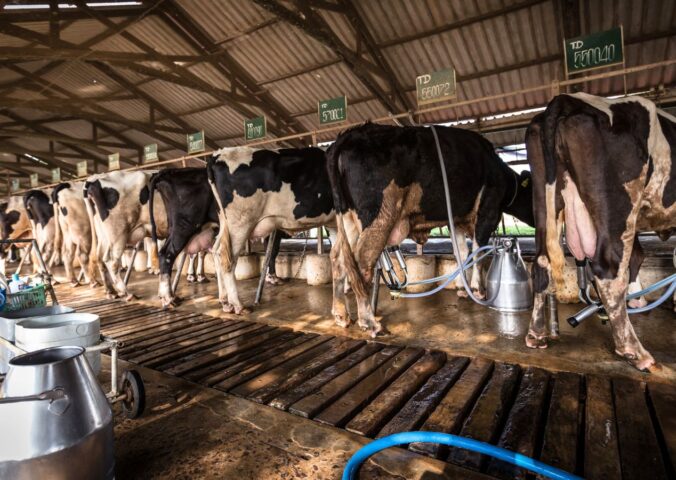What are the best and worst foods to eat for brain health? If you worry about your stroke risk there are two “main foods” to avoid, according to a major population study. To lower your stroke risk stay away from processed meat and red meat, according to a comprehensive study that looked at dietary factors and stroke risk.
Doctors have known for years that stroke risk is related to diet, but now researchers have conclusive evidence that these two types of meat consumption drives up risk, while eating more fruits and vegetables and foods high in fiber help to lower stroke risk.
According to the study, just a small amount of meat daily can raise your risk of suffering an ischemic stroke, the most common type of stroke, by 14 percent.
What Types of Meat Increase Risk of Stroke?
Eating just one portion of red or processed meat a day was associated with increased stroke risk. Processed meat is considered any meat that has been cured, salted, or altered in some way in order to preserve or flavor it, such as bacon, sausage, ham, pepperoni and all types of salami, while red meat is defined as beef and pork.
The study, published in the European Heart Journal in 2020, looked at dietary factors in 418,329 participants followed for over 12 years across nine European countries as part of the EPIC cohort, and found that ischemic stroke risk was driven up by meat consumption, but that eating more plant-based foods actually decreased the risk.
“Risk of ischemic stroke was inversely associated with consumption of fruit and vegetables, dietary fiber,” the study found. So along with cutting out meat, adding more servings of high fiber foods cuts stroke risk by a significant amount.
These two types of meat should be crossed off your shopping list if you worry about having a stroke, according to Dr. Shireen Kassam, a founder of Plant-Based Health Professionals UK. What to eat instead? Fruits, vegetables, and plant-based proteins. Dr. Kassam was recently quoted in The Express as saying that the high saturated fat content of red and processed meat is a chief concern.
How much meat increases stroke risk?
You don’t have to gorge on hotdogs to see your stroke risk rise. Consuming as little as 50 grams of red or processed meat daily was linked to a 14 percent higher risk of an ischemic stroke in the 2020 study.
The study started in 2013, when stroke was the second most common cause of death and the third most common cause of disability worldwide, the authors wrote. (Since then, cancer has overtaken stroke as the second leading cause of death, behind cardiovascular disease.) While the incidence and mortality of stroke have decreased globally in the past two decades, the absolute numbers of both ischemic and hemorrhagic stroke cases, deaths, and prevalence have increased.
What’s the difference between ischemic and hemorrhagic stroke?
An ischemic stroke is the most common type of stroke and is caused by a blockage that cuts off blood supply to part of the brain. A hemorrhagic stroke is caused by bleeding in or around the brain, but is actually more deadly since it’s less likely that someone can survive this type of stroke.
About 87 percent of all strokes are ischemic strokes, in which blood flow to the brain is blocked, according to the CDC. An ischemic stroke can occur if a blood clot breaks away from plaque buildup in a carotid artery, and travel to an artery in the brain, lodging there and preventing blood flow and oxygen to brain cells.
A hemorrhagic stroke happens when a weak blood vessel bursts and bleeds into the brain. People who experience this type of stroke, in addition to other symptoms, may experience a sudden onset headache or head pain, which may not accompany an ischemic stroke.
Studies have determined that our food choices can impact our stroke risk, especially in the case of ischemic strokes. The statistics on strokes are daunting. Consider:
- Each year around 32,000 stroke-related deaths occur in England
- Stroke is a leading cause of disability and death in the UK
- Strokes kill about 140,000 Americans a year, or 1 out of 20 deaths
- About 30 percent of people who have had a stroke will experience another
- 15 million people worldwide suffer a stroke every year, 5 million die and another 5 million are left disabled
Red meat and stroke risk
Researchers have known about the link between red meat and stroke risk for over a decade. Previous studies have tied red meat and processed meat to elevated stroke risk.
A 2011 study found that men who ate more than two red meat servings a day had a 28 percent higher stroke risk than those who ate just one-third of a serving or less each day. The authors suggest that to lower stroke risk consumers should replace red meat with other dietary sources of protein.
Why does meat increase stroke risk?
The main culprit in red meat that creates stroke risk appears to be saturated fat, which can contribute to higher LDL cholesterol levels, leading to plaque deposits and elevated blood pressure, all risk factors associated with ischemic stroke.
Saturated fats, which are commonly found in red meat, can contribute to high cholesterol, a stroke risk factor. Therefore, it’s crucial to avoid eating saturated fats and find healthier alternatives such as seeds, nuts, and avocados and seek out plant-based sources of protein such as beans.
Takeaway
Replace red meat and processed meat in your diet with tasty, high-fiber protein sources such as soy, tempeh, jackfruit, beans, and other high-protein, low saturated fat foods. Avoid saturated fats in coconut and palm oils, and get exercise to keep blood pressure low and maintain a healthy body weight.
If you have symptoms such as headache, sharp head pain or loss of speech, motor function, balance or vision, don’t hesitate to get medical help immediately. Always seek the help of health professionals if you suspect you or someone you love may be having a stroke.






